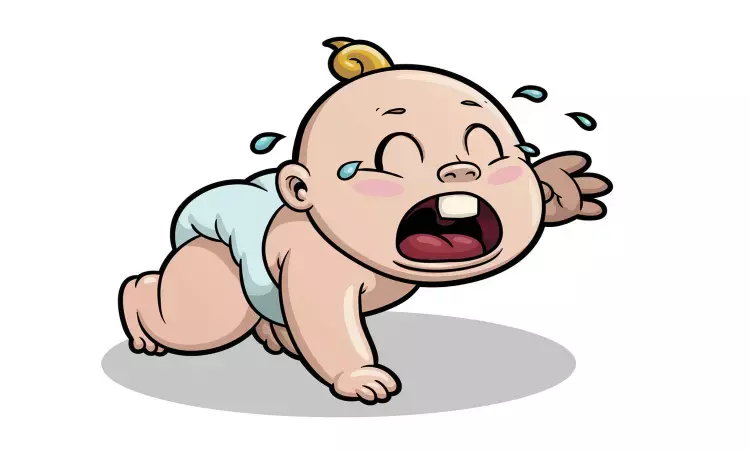- Home
- Medical news & Guidelines
- Anesthesiology
- Cardiology and CTVS
- Critical Care
- Dentistry
- Dermatology
- Diabetes and Endocrinology
- ENT
- Gastroenterology
- Medicine
- Nephrology
- Neurology
- Obstretics-Gynaecology
- Oncology
- Ophthalmology
- Orthopaedics
- Pediatrics-Neonatology
- Psychiatry
- Pulmonology
- Radiology
- Surgery
- Urology
- Laboratory Medicine
- Diet
- Nursing
- Paramedical
- Physiotherapy
- Health news
- Fact Check
- Bone Health Fact Check
- Brain Health Fact Check
- Cancer Related Fact Check
- Child Care Fact Check
- Dental and oral health fact check
- Diabetes and metabolic health fact check
- Diet and Nutrition Fact Check
- Eye and ENT Care Fact Check
- Fitness fact check
- Gut health fact check
- Heart health fact check
- Kidney health fact check
- Medical education fact check
- Men's health fact check
- Respiratory fact check
- Skin and hair care fact check
- Vaccine and Immunization fact check
- Women's health fact check
- AYUSH
- State News
- Andaman and Nicobar Islands
- Andhra Pradesh
- Arunachal Pradesh
- Assam
- Bihar
- Chandigarh
- Chattisgarh
- Dadra and Nagar Haveli
- Daman and Diu
- Delhi
- Goa
- Gujarat
- Haryana
- Himachal Pradesh
- Jammu & Kashmir
- Jharkhand
- Karnataka
- Kerala
- Ladakh
- Lakshadweep
- Madhya Pradesh
- Maharashtra
- Manipur
- Meghalaya
- Mizoram
- Nagaland
- Odisha
- Puducherry
- Punjab
- Rajasthan
- Sikkim
- Tamil Nadu
- Telangana
- Tripura
- Uttar Pradesh
- Uttrakhand
- West Bengal
- Medical Education
- Industry
High family adversity in childhood tied to heart attack, stroke as adult

Researchers have found that children who experience trauma, abuse, neglect and family dysfunction are at increased risk of having heart disease in their 50s and 60s.
The results from the study showed that people exposed to the highest levels of childhood family environment adversity were more than 50 percent more likely to have a cardiovascular disease event such as a heart attack or stroke over a 30-year follow-up.
The findings have been published in the Journal of the American Heart Association.
Childhood adversity and trauma have been shown to be associated with poorer cardiovascular disease (CVD) outcomes in adulthood. However, longitudinal studies of this association are rare.
The study highlights that high family adversity in childhood tied to heart attacks, strokes as adult.Childhood adversity can lead to lifelong stress, smoking, anxiety, depression, sedentary lifestyle in adulthood.Social, economic support for young children has biggest 'bang for the buck' to combat issues
The longitudinal study of more than 3,600 participants is among the first to describe the trajectory of cardiovascular disease and death based on family environment ratings from young adulthood into older middle age.
Children who experience this type of adversity are predisposed to higher rates of lifelong stress, smoking, anxiety, depression and sedentary lifestyle that persist into adulthood. These can lead to increased body mass index (BMI), diabetes, increased blood pressure, vascular dysfunction and inflammation.
"This population of adults is much more likely to partake in risky behaviors - for example, using food as a coping mechanism, which can lead to problems with weight and obesity," said first author Jacob Pierce, a fourth-year medical student at Northwestern University Feinberg School of Medicine. "They also have higher rates of smoking, which has a direct link to cardiovascular disease."
Adults who were exposed to these risk factors as children may benefit from counseling on the link between coping with stress and controlling smoking and obesity, but more research is needed, Pierce said.
"Early childhood experiences have a lasting effect on adult mental and physical well-being, and a large number of American kids continue to suffer abuse and dysfunction that will leave a toll of health and social functioning issues throughout their lives," said senior author Joseph Feinglass, research professor of medicine and of preventive medicine at Feinberg. "Social and economic support for young children in the United States, which is low by the standards of other developed countries, has the biggest 'bang for the buck' of any social program."
The study used the Coronary Artery Risk Development in Young Adults (CARDIA) Study, a prospective cohort that has followed participants from recruitment in 1985-1986 through 2018, to determine how childhood psychosocial environment relates to cardiovascular disease incidence and mortality in middle age.
To get a broad idea of what a study participant's family environment was like during their childhood, participants answered survey questions that asked questions such as, "How often did a parent or other adult in the household make you feel that you were loved, supported, and cared for?" or "How often did a parent or other adult in the household swear at you, insult you, put you down or act in a way that made you feel threatened?"
The most predictive of cardiovascular disease later in life was "Did your family know what you were up to as a kid?" Pierce said.
While the study didn't specifically address attentiveness of parents, the findings indicate parents' involvement in their children's lives could impact their health later in life.
For further reference log on to:
http://dx.doi.org/10.1161/JAHA.119.015326
Dr Kamal Kant Kohli-MBBS, DTCD- a chest specialist with more than 30 years of practice and a flair for writing clinical articles, Dr Kamal Kant Kohli joined Medical Dialogues as a Chief Editor of Medical News. Besides writing articles, as an editor, he proofreads and verifies all the medical content published on Medical Dialogues including those coming from journals, studies,medical conferences,guidelines etc. Email: drkohli@medicaldialogues.in. Contact no. 011-43720751


